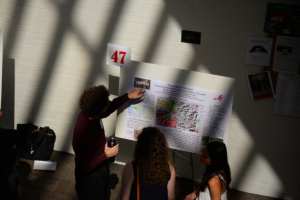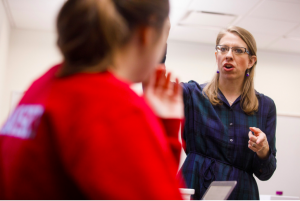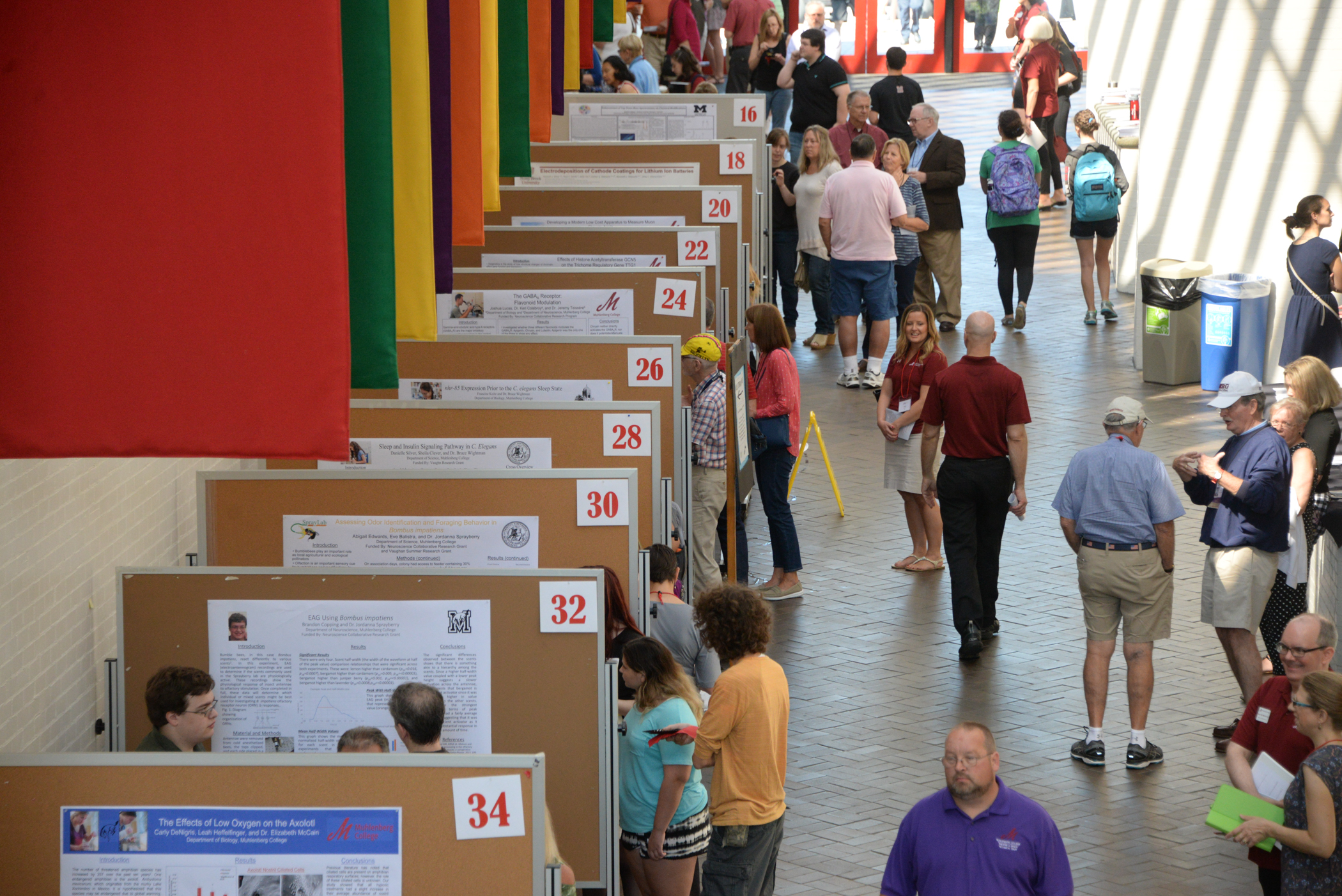On Sept. 22 from 11 a.m.-12:30 p.m. in the Center for the Arts, students across various majors and interests will be presenting research they worked on over the summer here at Muhlenberg. The poster session is an opportunity for students to celebrate their work and share their knowledge with the wider Muhlenberg community. It is not funded and there is no competition; students are just eager to show off their hard work.

“This summer, one third of our student projects were in the social science and humanities, with a full 10 percent in the humanities” said Dr. Keri Colabroy, an associate professor of chemistry who helped to facilitate this program and organize the poster session.
Participants also researched work in the fields of biology, biochemistry, mathematics, neuroscience and physics. Along with a multitude of disciplines being covered, a few students also did their research outside of Muhlenberg, including University of Michigan and Harvard University. Some even did their research abroad, including Denmark, Iceland and the Czech Republic.
“A student who is newer to research in an area will require more guidance than one who is more experienced,” Colabroy explains, “but high-quality research at the undergraduate level is most often the result of student-faculty collaboration in which the faculty member is mentor, principal investigator and teacher.”
“high-quality research at the undergraduate level is most often the result of student-faculty collaboration in which the faculty member is mentor, principal investigator and teacher.”
So many Muhlenberg students and faculty members successfully work together and are able to learn from each other.
“This was my second summer working on a history project on women’s protests in a territory of the Congo” said Michaela Feinberg ‘19, who participated in research at Muhlenberg over the summer.
Feinberg researched for two months each summer and hopes to continue it for her history CUE. She met with her faculty advisor, Dr. Danielle Sanchez, twice a week, and sometimes more, to discuss her progress. By doing this work over the summer rather than during a semester at Muhlenberg, Feinberg was able to do archival research and attend the United Nations Archives in New York as well as the New York Public Library and the Library of Congress.
Feinberg is passionate about her research and is excited to add that her studies will be helpful for her future goal of attending grad school for either history or library science. She highly recommends this program to her fellow peers. Even though she was not home over the summer, she explains, “It was definitely worth it! I had a few friends on campus and actually spend a lot of time off campus, so that helped break up the time.”
When asked how this program may be improved, Feinberg stated, “I would improve it by encouraging more humanities students to do it. Only a few other humanities students have researched with me and I think that it’s equally important to promote different types of research. Summer research is a great opportunity and I think it should be more interdisciplinary.”

Dr. Colabroy also speaks about the future of the program and what she hopes to see come next for both students and faculty involved and those in the greater Muhlenberg community. She hopes “more and more students will have an interest in and opportunity to engage in research and scholarship on campus.” She adds that working with students is some of the best teaching she does; it creates a long-lasting relationship and benefits both sides.
Dr. Colabroy also anticipates that one day the poster session will become too large to even fit in the CA. This poster session will be informative and likely motivate fellow students and faculty to participate in their own research.






















